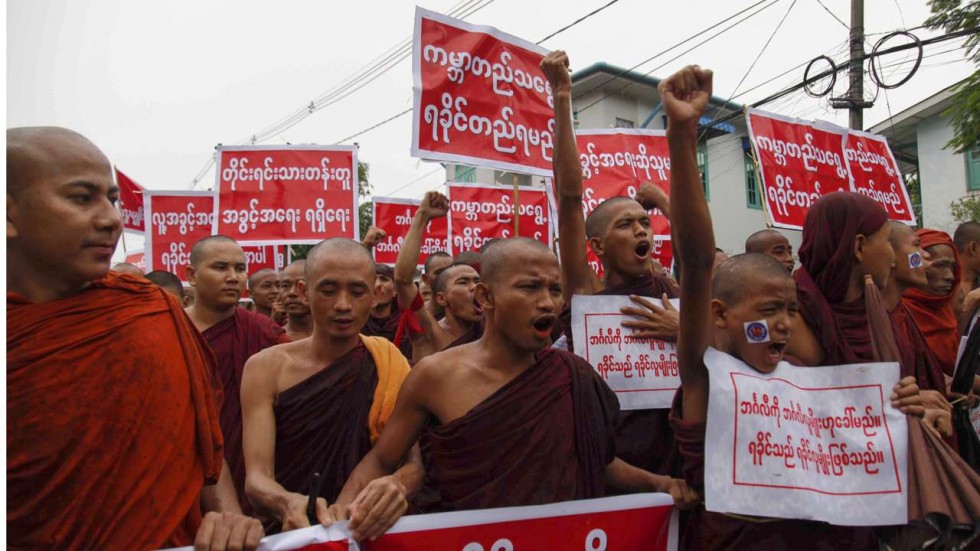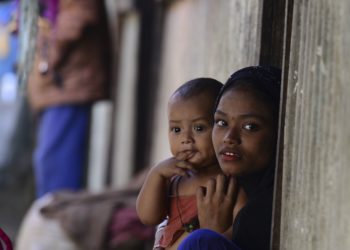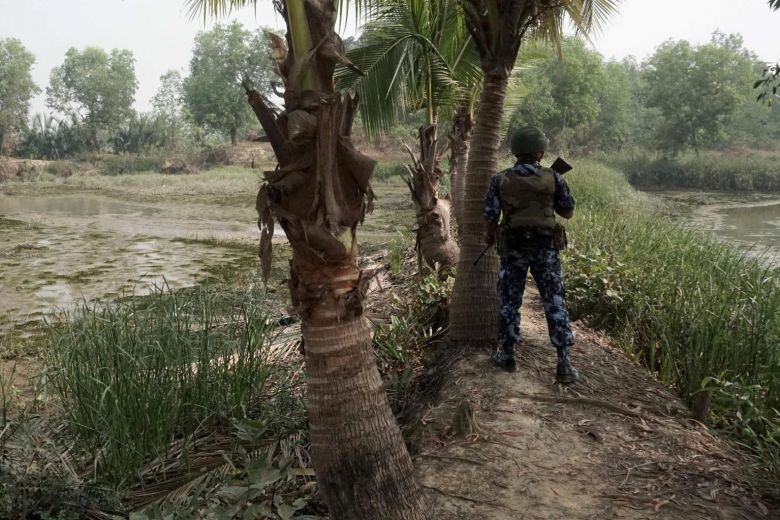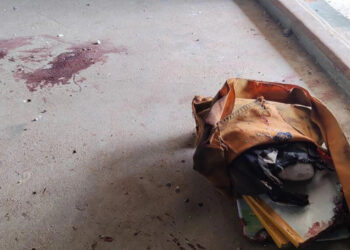Seven ethnic Rakhine Buddhists were killed after Myanmar police opened fire on a crowd trying to seize a government office, officials said Wednesday.
The incident unfurled as around 5,000 Buddhists gathered late Tuesday for a nationalist ceremony in Mrauk U, a town that has so far remained unscathed by the military’s crackdown on the region’s minority Rohingya Muslim community.
It was not immediately clear why the rally descended into violence.
But ethnic Rakhine, many of whom are poor and marginalised, have a long-standing enmity with the Myanmar state which is dominated by ethnic Bamar.
The clashes came on the same day that a repatriation agreement was signed between Myanmar and Bangladesh to start the return of some 655,000 Muslim Rohingya refugees from squalid camps over the border.
Rakhine say the Rohingya are illegal “Bengali” immigrants to a Buddhist land.
A police spokesman blamed the crowd for “starting the violence” by throwing stones and barging into a district administrative office and hoisting the Rakhine State flag.
“Security forces asked them to disperse and fired warning shots with rubber bullets… but they didn’t stop, so police had to use real bullets,” spokesman Colonel Myo Soe told AFP.
“Seven people were killed and 13 injured,” he said adding more than 20 police were wounded by the crowd, who were calling for the “sovereignty of Rakhine state”.
A hospital in state capital Sittwe treated five of the wounded for gunshots, a doctor there told AFP.
The shootings further raise the temperature in the already combustible area of Myanmar.
“It’s not forgivable that they used guns,” Mrauk U lawmaker U Hla Saw of the Arakan National Party said, confirming the death toll and labelling the police action “a crime”.
Witness Nyi Nyi Khant, 29, said the clashes could have been prevented if the police had intervened earlier.
“The police had time to prepare to stop the crowd before they reached the office,” he told AFP. “They could have blocked the street but they did not do that.”
Mrauk U, home to an ancient Buddhist complex of the last Rakhine kingdom, lies a few dozen kilometres from the epicentre of violence that saw Rohingya driven in their hundreds of thousands into Bangladesh since last August.
The military led a brutal crackdown against the Rohingya after militant attacks against border posts killed around a dozen police.
Rohingya say security forces, backed by hardline Rakhine mobs, torched hundreds of Rohingya villages and forced them to flee.
Refugees arriving in Bangladesh have brought with them consistent testimony of murder, rape and arson in the violence justified by the army as a legitimate response to the militant attacks.
Already shredded by communal hatreds, Rakhine state also has a Buddhist rebel group called the Arakan Army which is fighting Myanmar’s army.
The clashes garner little attention in a state dominated by violence against the Rohingya and in a country where several larger ethnic insurgencies are burning.
Observers warned Tuesday’s violence could open a new chapter of unrest in the febrile state.
“I think there will be a risk for spillover into intercommunal violence,” independent analyst Gabrielle Aron said.
“The degree of risk will depend partly on how well or poorly security forces are seen to respond to the events of last night,” she said, adding the situation “could deteriorate”.






















